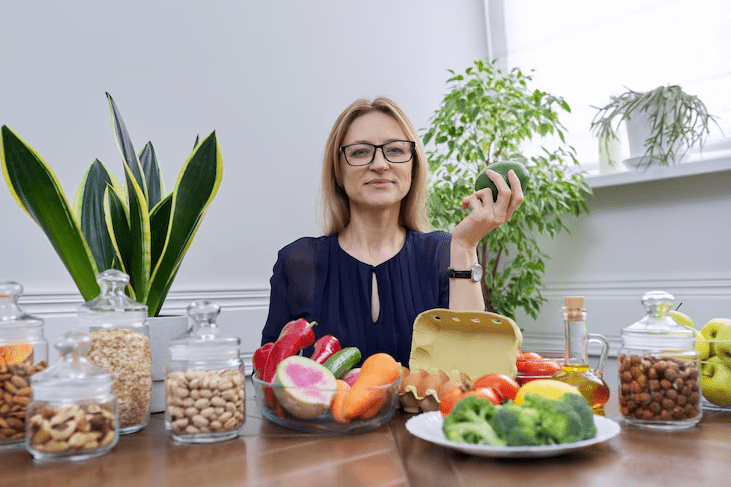
Can a Plant‑Based Diet Really Ease Menopause Symptoms? What UK Women Should Know
Menopause is a natural process in every woman’s life, but the change tends to be accompanied by a set of physical and emotional complications – ranging from hot flushes and night sweats to mood swings and weight gain. A lot of UK women are now moving towards dieting as a means of controlling the symptoms, and an increasing number are specifically looking at the advantages of a vegetarian diet. But can food actually impact hormone health? In Dr. Sandar Hlaing Women’s Health, we subscribe to a whole approach to wellness, and nutrition is a critical part of that process.
Understanding Menopause and Hormonal Shifts

Menopause usually comes between the ages of 45-55 years and signifies the cessation of a woman’s menstrual cycle. The resultant decline in oestrogen levels can induce a range of symptoms including sleep problems, mood swings, vaginal dryness, and pain in the joints. Although Hormone Replacement Therapy (HRT) is a reliable medical intervention, quite a few women look for complementary approaches to aid their health.
How a Plant-Based Diet Supports Menopause Health

An equilibrated plant food diet can provide a number of advantages to women going through menopause:
- Phytoestrogens: They are present in soy, flaxseeds, and lentils and imitate oestrogen in the body and can even help alleviate hot flashes and balance hormones.
- Fibre foods: Beans, whole grains, fruits, and vegetables promote healthy gut bacteria and control weight and cholesterol levels that are harder to control during menopause.
- Anti-inflammatory Effects: High-antioxidant, high-omega-3 intake can reduce joint pain and mood swings.
- Healthy Heart: Cardiovascular risk escalates after menopause; the diet provides a plant-based boost for heart function.
Expert Insight: Dr. Sandar’s Holistic Approach

As Swansea-based menopause specialist Dr. Sandar Hlaing, she provides individualised nutritional advice as part of her menopause plans of care. Whether you are thinking of lifestyle changes, HRT, or both, she aims to enable you to feel grounded and supported throughout this process. Find out more about her menopause services and how she incorporates individualised dietary advice into care plans.
Making the Switch: Tips for a Plant-Based Menopause Diet
If you’re ready to begin adding more plants to your diet:
- Start Slow: Start by adding one plant meal per day to make the transition easier.
- Add Soy: Edamame, tofu, and soy milk are high in isoflavones.
- Diversify Your Plate: Try to eat 30 different plant foods every week for gut and hormonal health.
- Limit Processed Foods: Use whole, minimally processed ingredients whenever possible for optimal gain.
- Hydrate Well: Adequate hydration can relieve bloating and curb headaches.
Frequently Asked Questions for Women Regarding Diet and Menopause
- What are the optimal foods for menopause symptoms?
- Can a plant-based or vegan diet aid in weight gain during menopause?
- Are soy foods safe for hormone balance?
- Must I eliminate dairy or meat entirely?
They are typical questions that Dr. Sandar answers through consultations at her women’s health clinic, providing evidence-based responses specific to the individual woman.
Further Support at Dr. Sandar Hlaing Women’s Health
Aside from diet counseling, Dr. Sandar provides wide-ranging services such as:
- Hormone Replacement Therapy
- Mental health counseling
- Skin revival and cosmetic services
- Youth and old age health clinics
- Breathlessness and memory evaluations
Discover more about our extensive women’s health services.
Conclusion
A diet of vegetables is not magic, but it can act as a supporting mechanism for alleviating the symptoms of menopause and enhancing general health. When coupled with professional advice and individualized treatment from Dr. Sandar Hlaing, women are able to take back their health, confidence, and way of life.
Need Support with Menopause?
Make your appointment today and let Dr. Sandar Hlaing assists you in creating a menopause care plan tailored just for you – body, mind, and spirit.


